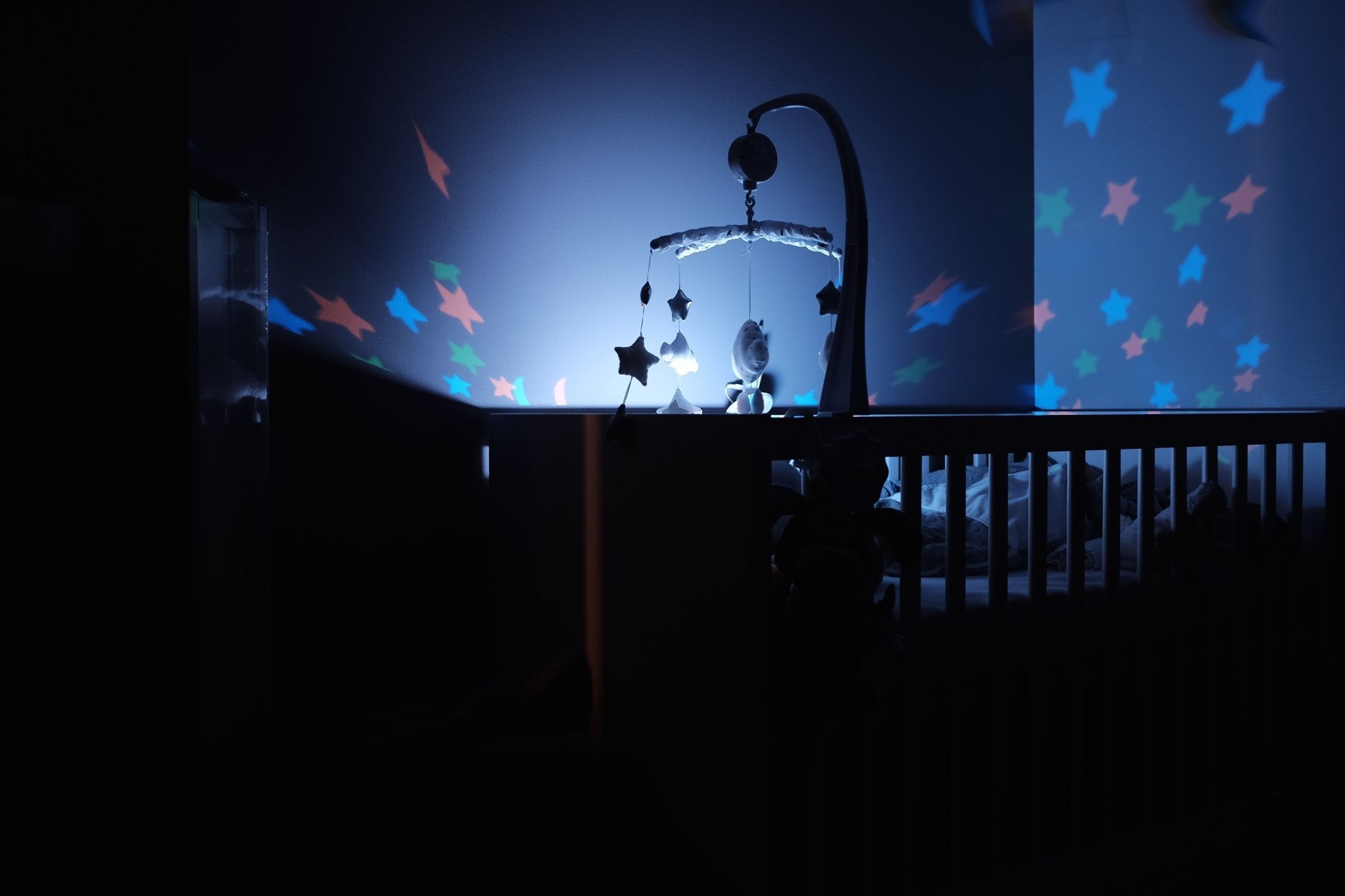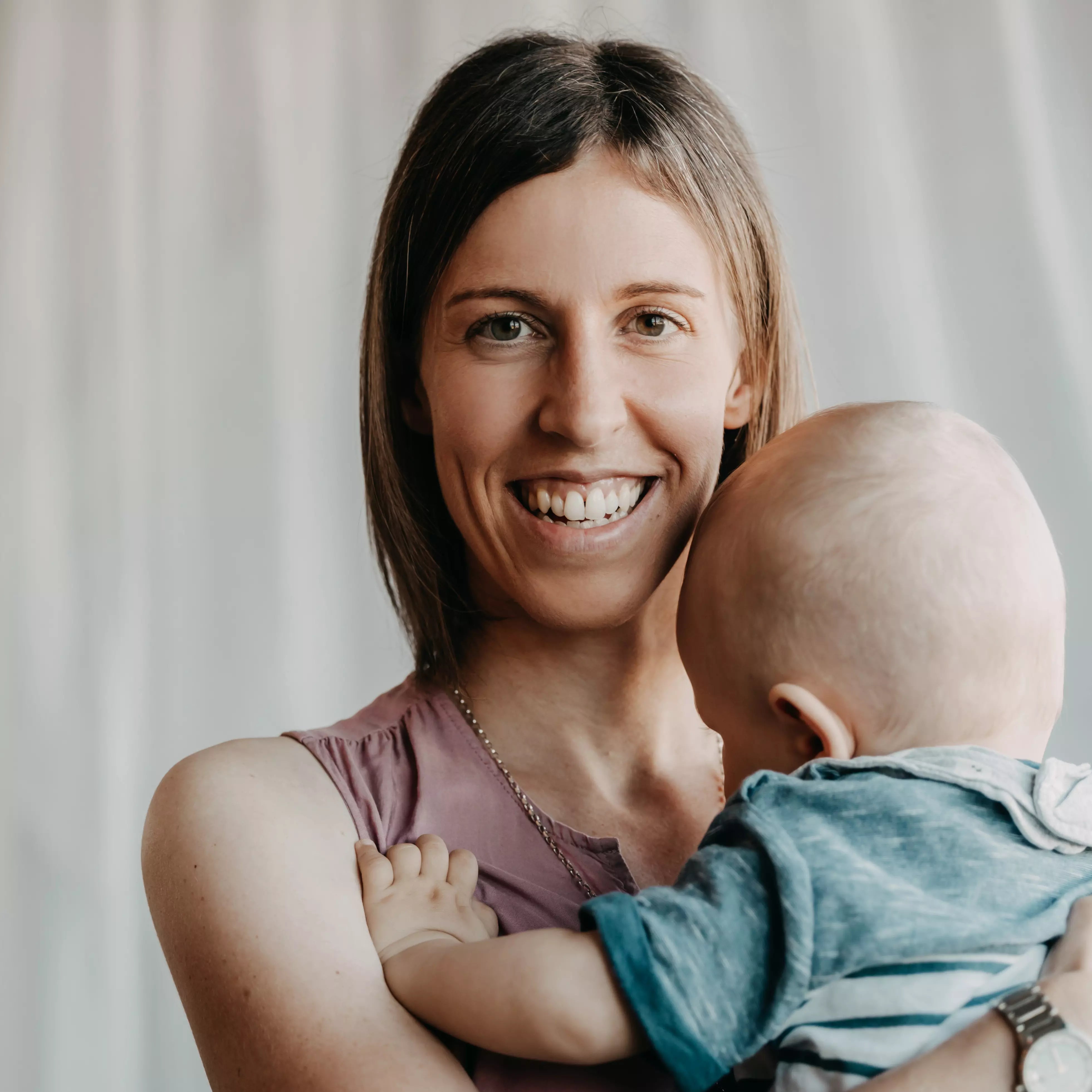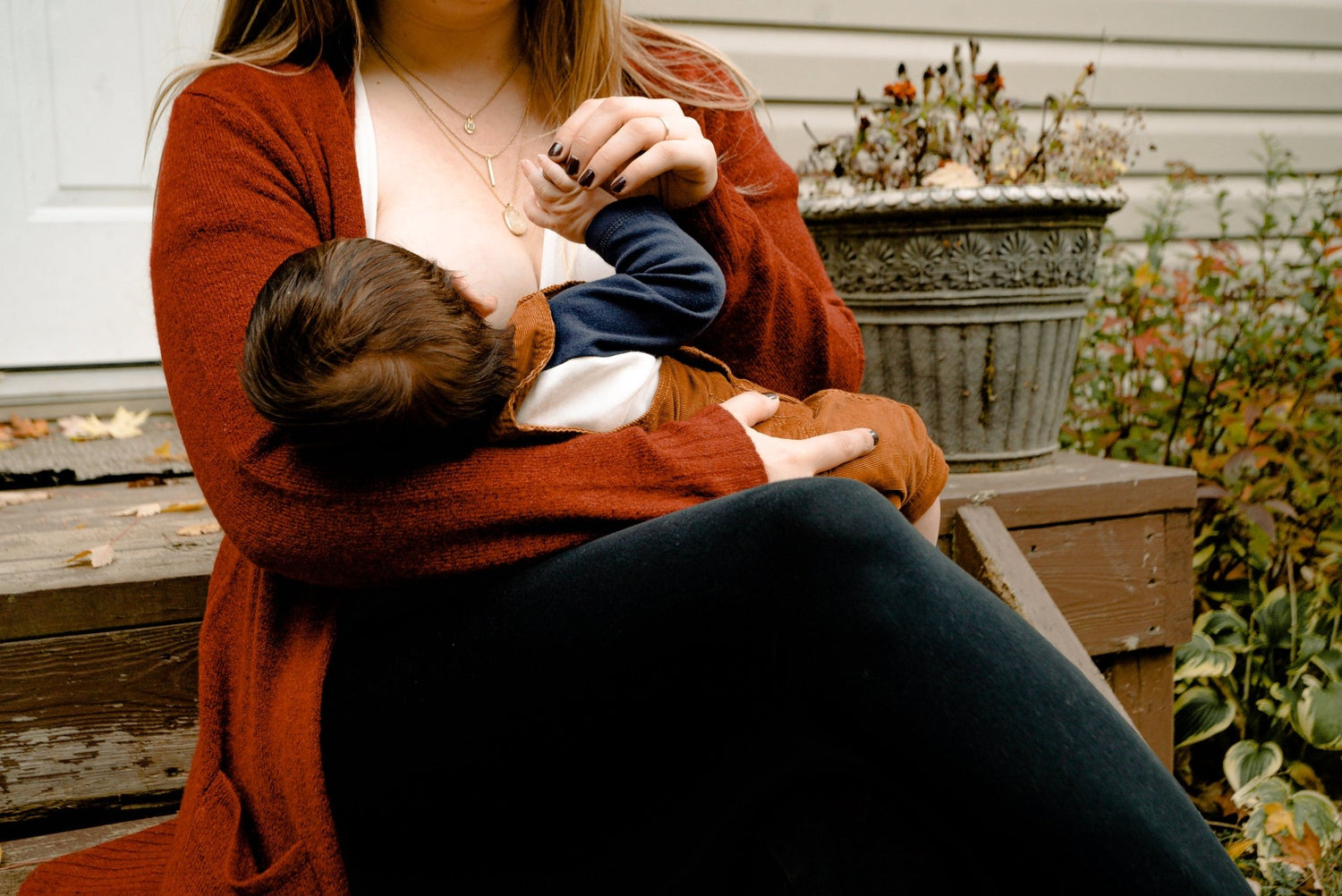Top 9 baby sleep challenges... and how to easily solve them
Together with Sabrina from Babyschlafprofi.de , we have worked out the 9 most common sleeping situations for you in two blog posts, which repeatedly bring young parents to the brink of despair. What to do if your baby just doesn't want to fall asleep or wakes up very early in the morning? In the first part we go into 6 situations and give you the appropriate tips that have already helped numerous mothers. Have fun reading & implementing :)
|
Table of contents:
|
But before we get started, we would first like to go into the “standard values” for small children. From our experience, some perceived challenges are simply a part of babies' natural development.
1. How often and how long should my child actually sleep?
Parents often ask themselves what exact sleep needs their child has in the first year of life and how many hours a day or night are "age-appropriate". The following table should answer this question. It represents the sleep needs of a child in the first year of life.
But beware: the listed values should only serve as a guide. Please note that every child is different and therefore may have slightly different sleeping needs!

2. Baby sleep challenges
2.1. My child takes a long time to fall asleep
If it often takes longer than 15 to 20 minutes to fall asleep during the day and/or in the evening, it can generally be said that it is not the right time.
If you put your child to bed too early and they are not tired enough, then your child will simply find sleeping too boring. This is often shown by getting up or sitting down in bed more often, or your child cheerfully telling stories.
In this case, you should tend to put your child down a little later for several days. Do this step by step!
On the other hand, if you put your child to sleep too late, it may already be overtired.
When you are overtired, the stress hormone cortisol is released, which in turn makes it difficult for your child to fall asleep even though they are dead tired. This is often shown by the fact that your child has had a certain low at an earlier point in time and is suddenly wide awake and squeaky again.
Therefore, try to constantly repeat the sleep times over a few days and pay close attention to your child's signs of tiredness and signals.
Warning: you should never sleep before 6:00 p.m.!
2.2. My child skipped the afternoon nap and is therefore in the evening much earlier tired
If, for whatever reason, your child has missed the last nap before going to bed, put your child to bed around 6:00 p.m. on such days to avoid over-tiredness!
Important: It is a fallacy that children sleep longer in the morning if they go to bed later in the evening and your child does not necessarily wake up at 5:00 a.m. - quite the opposite 😉
2.3. My child only takes very short daytime naps (<1 hour)
There are many possible reasons why your child only sleeps very briefly during the day:
- fatigue
- sensory overload
- unfamiliar noises
- hunger
- too much total sleep
- Developmental spurt/regression
- too little sleep pressure (not tired enough)
- Discomfort / Illness / Pain
- used sleep aids
However, in our experience, the sleeping aids used are the most common reason why a child wakes up again after a short time and usually only falls asleep again when this state of falling asleep is restored.
If you can rule out all other factors listed above and suspect the sleep aid, then try to reduce them little by little.
2.4. My child took an unplanned afternoon power nap. Therefore, the original bedtime no longer fits
Such an unplanned power nap in the late afternoon is sheer horror for every mum! You're still on the road "just for a moment" and almost at home, you look in the rear-view mirror and see that the child has blissfully fallen asleep in the car seat.
This 10-minute power nap can then give the child a real energy boost. The sleep pressure that has built up up to that point is gone for the time being!
Important: stay as relaxed as possible and take a deep breath first! Then postpone going to bed in the evening by 30 to 60 minutes to save you and your child a lot of stress!
2.5. My child goes to bed relatively early and wakes up very early in the morning (5:30 a.m.) in a good mood
If your child wakes up in a good mood that early in the morning, then they probably slept in. But what can you do now so that your child sleeps longer in the morning?
Shift your bedtime in the evening by 15 to 20 minutes every 3 to 4 days. Then after 3 to 4 days you have shifted the time you go to bed in the evening by an hour.
Important: It may take about 3 weeks for your child's biorhythm to get used to the new time. So be patient if nothing changes immediately!
2.6. My child is awake at night and is in a good mood
Nocturnal waking phases occur more frequently in the 11 or 24 month regression, since your child’s need for sleep changes during this time.
The nocturnal waking phases are caused by an oversupply of daytime sleep.
In order for these waking phases to disappear again, you can either completely eliminate or shorten one day's sleep, or you can put your child to bed an hour later in the evening.
Slowly feel your way forward when shortening your daytime sleep! Don't let yourself be unsettled: you know best which of the options listed best suits your child.
2.7 My baby only finds its way back to sleep with several bottles
If your baby only finds its way back to sleep with several bottle feeds, there is not just ONE general tip. There are several things to consider.
Of course, your baby can have a drink during the night if he or she is thirsty! However, if you notice that the bottle is the reason why your child wakes up several times during the night, even at the age of 1 and older, then it may make sense to reduce and/or eliminate the bottle feeds during the night. It is also often the case that children do not eat well during the day if there are still several bottle feeds at night.
Important: Waking up is not prevented if you offer water instead of a bottle of milk!
If you don't want to completely eliminate a bottle meal and decide to take a more gentle step, you can start by reducing the amount of milk in 50 ml to 100 ml increments over several days!
Caution: It does not help to reduce the amount of powder alone. This will of course reduce the calorie intake at night and your child may eat better during the day, but the impulse to wake up will still be there.
If you decide to completely eliminate a bottle meal, be emotionally prepared for 1 to 3 nights to be a challenge. Important: Give your child all the love and affection he or she needs during this time! But after that, your child will be able to get the sleep it needs for healthy development and wake up less often.
2.8 My baby only falls asleep when breastfeeding or only falls asleep again through breastfeeding
If your baby often wakes up at night and only falls asleep at the breast or through breastfeeding, we hope that the following tips will help you.
Breastfeeding is an absolute basic need, especially in the first year of life, and is also part of the special relationship between mother and child. The WHO recommends "exclusive breastfeeding for 6 months and, with appropriate complementary feeding, continued breastfeeding for up to 2 years or beyond."
Basically, breast milk is a valuable source of energy, protein and power. It also provides valuable minerals and long unsaturated fatty acids, which are important for the development of the central nervous system.
The instinctive behaviour and hormones released by both mother and child during breastfeeding support the mother-child bond and promote effective communication between the two. All this strengthens the child's basic trust.
But what if your child is 9 months or older and wakes up several times during the night and can only be brought back to sleep when breastfed? So that your baby only falls asleep when breastfeeding or at the breast? Do you often notice that it's not necessarily about feeding, but about sucking yourself to sleep at the breast?
If so, it is possible that your child has developed a "negative sleep association" - your child thinks that it can only find its way to sleep (again) with the help of the breast.
First of all: you don't have to wean your child so that it can get the sleep it needs for healthy development!
If the situation is stressful for you and you notice that your child is not getting a good night's sleep because of the frequent waking, you can start to reduce the number of breastfeeding times to an appropriate level. To do this, you can either cut out whole breastfeeding sessions or, for example, always undock a little earlier in the breastfeeding process. If your baby only falls asleep at the breast, you can use both options to wean your baby off the breast.
If you decide to cut out breastfeeding completely, be emotionally prepared for 1 to 3 nights to be a challenge.
Important: give your child all the love and affection he or she needs during this time! As with the bottle, offering water instead of the breast will not prevent waking up!
2.9 My baby only falls asleep with a lot of movement
Especially in the first 3 to 4 months of life after birth, many babies struggle with severe abdominal pain and flatulence. These three-month colics can be very hard on babies and cause them a lot of pain.
Being carried can help babies' digestion. This is also the reason why babies who suffer from flatulence and abdominal pain seek more closeness to their parents.
But what if, even well beyond those 3-month colics, the baby only finds sleep when being carried?
If your child needs some kind of movement to get to sleep and starts crying bitterly or even screaming if you don't give him this movement, there are many indications that your child has developed a so-called "negative sleep association".
This usually happens from the 3rd/4th month of life, when children reach a new cognitive maturity.
Negative sleep association means that your child thinks it needs xyz to fall asleep (again) - in this case, the movement factor.
If you notice this in your child, you can try to gradually reduce the amount of movement.
It is important to find the necessary balance so that, for example, when carrying the child in your arms, it is still possible to put the child down in bed without causing a huge roar.
Since it is not always easy to find the right feeling for the necessary intermediate steps on one's own, it can make a lot of sense to ask for support in this regard.
We hope we've been able to help you with our tips and give you some helpful hints if your baby only falls asleep at the burst or while breastfeeding, needs movement to fall asleep, or needs several bottles to get a good night's sleep :).
If you'd like to see more helpful videos on the most common sleep challenges, feel free to check out our YouTube channel. We look forward to it!
We wish you and your baby healthy and safe baby sleep.
Your Wombambino Team & Sabrina from Babyschlafprofi.de.





